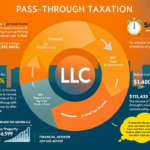Want to know how to become a landlord? This guide has you covered. We’ll show you how to get started, what challenges to prepare for, and how to manage your rental property successfully. Whether it’s assessing your finances, buying your first rental property, or handling tenant issues, you’ll find the essential steps here.
Key Takeaways
Evaluate financial readiness and time commitment before becoming a landlord to understand responsibilities fully.
Purchase the right investment property by considering location, amenities, rental potential, and compliance with local laws.
Establish clear lease agreements, maintain effective communication with tenants, and budget for unexpected costs to ensure successful property management.
Assess Your Readiness to Become a Landlord

Before entering the world of rental properties, evaluate your financial standing and time commitment. Assess potential rental income and additional costs like maintenance and unexpected repairs. Becoming a landlord requires managing tenant relationships and property upkeep, which demands significant time and effort from landlords.
Recognize the responsibilities and potential ups and downs of real estate investing. Local landlord communities can offer valuable support and answers to your questions, smoothing your journey. Additionally, familiarize yourself with the Fair Housing Act to ensure compliance with federal housing laws and avoid legal issues related to tenant discrimination.
Understanding the Role and Responsibilities of a Landlord
As a landlord, you play a crucial role in providing a safe and habitable living environment for your tenants. Your responsibilities extend beyond merely collecting rent; they encompass maintaining the property, handling repairs, and ensuring compliance with local and state laws. Understanding your role and responsibilities is essential to avoid potential issues and ensure a smooth landlord-tenant relationship.
Some key responsibilities of a landlord include:
Maintaining the property and making necessary repairs: Regular upkeep and prompt repairs are vital to keep the property in good condition and ensure tenant satisfaction.
Collecting rent and handling late payments: Establish a clear process for collecting rent and addressing late payments to maintain steady rental income.
Handling tenant complaints and resolving disputes: Effective communication and prompt resolution of issues can prevent conflicts and foster a positive relationship with tenants.
Ensuring compliance with local and state laws, including fair housing laws: Stay informed about landlord-tenant laws to avoid legal issues and ensure fair treatment of all tenants.
Providing a safe and habitable living environment for tenants: Regular inspections and adherence to safety regulations are crucial for tenant well-being.
By understanding and fulfilling these responsibilities, you can create a positive rental experience for both you and your tenants.
Know the Pros and Cons of Becoming a Landlord
Becoming a landlord can be a rewarding experience, but it’s essential to weigh the pros and cons before making a decision. Here are some of the advantages and disadvantages of becoming a landlord:
Pros:
Potential for passive income through rental properties: Rental income can provide a steady stream of passive income, contributing to your financial stability.
Opportunity to build wealth through real estate investing: Owning rental properties can be a lucrative investment, with the potential for long-term appreciation in property value.
Ability to diversify your investment portfolio: Real estate can be a valuable addition to your investment portfolio, offering diversification and reducing risk.
Potential for long-term appreciation in property value: Over time, property values may increase, providing you with significant financial gains.
Cons:
Risk of vacancy and lost income: Periods of vacancy can result in lost rental income, affecting your cash flow.
Risk of property damage and maintenance costs: Unexpected repairs and maintenance can be costly and time-consuming.
Risk of tenant disputes and lawsuits: Managing tenant relationships can sometimes lead to disputes and legal challenges.
Time-consuming and labor-intensive: Being a landlord requires a significant time commitment and effort, especially if you manage multiple properties.
Potential for negative cash flow: If rental income doesn’t cover expenses, you may experience negative cash flow, impacting your financial stability.
By carefully considering these pros and cons, you can make an informed decision about whether becoming a landlord is the right choice for you.
Purchase an Investment Property

A successful landlord begins with purchasing the right investment property. Consider various types of rental properties, including single-family homes, condos, and multi-unit buildings. Real estate investors typically need a down payment ranging from 15% to 25%, which can be challenging for many landlords.
Evaluate a property’s rental potential by considering factors like location, amenities, and market demand. Areas with low property taxes and good school districts tend to be more profitable. Find a property that meets your financial goals and attracts renters.
A good rental property should be profitable and desirable to renters, considering its condition, proximity to services, and appeal. A well-informed decision at this stage sets the foundation for success.
Determine Whether You Need an LLC for Your Rental Business
As a landlord, you may want to consider forming a limited liability company (LLC) for your rental business. An LLC can provide personal liability protection and help you separate your personal and business finances. However, it’s essential to weigh the pros and cons of forming an LLC and determine whether it’s necessary for your rental business.
Benefits of forming an LLC:
Personal liability protection: An LLC can protect your personal assets from business-related liabilities, reducing your financial risk.
Separation of personal and business finances: Keeping your personal and business finances separate can simplify accounting and tax reporting.
Tax benefits: Depending on your situation, an LLC may offer tax advantages, such as pass-through taxation.
Ability to raise capital and attract investors: An LLC structure can make it easier to raise capital and attract investors for your rental business.
Drawbacks of forming an LLC:
Increased complexity and paperwork: Forming and maintaining an LLC involves additional paperwork and administrative tasks.
Higher costs and fees: There are costs associated with forming and maintaining an LLC, including state filing fees and annual registration fees.
Potential for double taxation: In some cases, LLCs may be subject to double taxation, depending on how they are structured and taxed.
Consider your specific circumstances and consult with a legal or financial advisor to determine whether forming an LLC is the right choice for your rental business.
Understand Local Landlord-Tenant Laws
Effectively managing the landlord-tenant relationship requires a thorough understanding of local laws. These laws define the rights and responsibilities of both parties, aiding in dispute resolution. For instance, tenants have the right to a safe and well-maintained rental unit, as well as privacy and timely notice before a landlord enters.
Understanding the Fair Housing Act is crucial as it prohibits housing discrimination and outlines landlords’ responsibilities in tenant screening processes.
Tenant screening laws require landlords to obtain applicants’ consent before conducting background checks. Compliance with the Fair Credit Reporting Act is also required for conducting credit checks on applicants. Be aware of local laws regarding security deposits, rent control, and eviction procedures.
Include necessary disclosures and clauses in your lease agreements as required by local laws. A lawyer’s review of your lease agreements can ensure legal compliance and protection for both parties.
Budget for Unexpected Costs
A key aspect of successful landlording is budgeting for unexpected costs. Ongoing maintenance and repair costs can consume a large portion of rental income. Create a comprehensive budget that includes all potential expenses to achieve financial success.
Many landlords set aside 50% of rental income for repairs and maintenance to guard against unexpected costs. Setting aside an emergency fund helps address unforeseen major expenses without financial strain. Effective budgeting prepares you for financial challenges and risks associated with renting.
Obtain Landlord Insurance

Landlord insurance is essential for protecting your rental property. It covers property damage and provides liability coverage in case of injuries on the premises. Landlord insurance premiums generally range from 0.3% to 0.5% of the property’s insured value annually.
Property location, claims history, and the building’s age can influence insurance rates. Encouraging tenants to purchase renters insurance can protect their belongings and reduce potential disputes.
Securing landlord insurance upon purchasing the rental property ensures protection from the start.
Make the Property Move-In Ready
Making your property move-in ready is crucial for attracting and retaining good tenants. Verify compliance with local regulations, which may include property inspections and safety checks. Repair broken fixtures, check smoke and carbon monoxide detectors, and ensure appliances work before renting. Ensure that the rental agreement clearly outlines the move-in process and that the property condition aligns with the documented terms before the tenant arrives.
A professional cleaning service can make a significant difference by thoroughly cleaning the rental unit before move-in. Vacuuming floors, wiping down surfaces, and landscaping should be part of the cleaning process. Conduct a thorough inspection of the property before handing it over to ensure everything is up to standard.
A move-in checklist documenting the property’s condition can prevent future disputes over damages. Include all aspects of the property, from safety checks to cosmetic repairs, in the checklist to ensure it is in excellent condition before new tenants arrive.
Set a Competitive Rent Price
Setting a competitive rent price attracts renters and ensures steady rental income. Understand local rental market trends and use online tools to compare similar properties to determine a fair rental price. The property’s location, amenities, and nearby services significantly influence rental desirability and pricing.
Consider offering competitive amenities to justify higher rental rates. Track recent changes in rental prices and seasonal demand fluctuations to keep your pricing competitive.
Resources like Rent Analysis Reports can help landlords effectively price their rentals.
Market Your Rental Property

Effective marketing attracts prospective tenants. Targeted ads on social media and engagement with local community groups can enhance visibility for your rental property. Multiple listing services, social media, and university apartment listings are effective marketing options.
High-quality photos in online listings can attract more potential tenants. Highlight key features and benefits of the property, such as pet policies or parking availability, to make your listing stand out. Reviews and testimonials on online rental platforms help build trust with prospective tenants.
Screen Prospective Tenants
Screening prospective tenants is a crucial step in the rental process. Adhere to fair housing laws to avoid discrimination during the tenant screening process. Collect rental applications and run credit and background checks to assess eligibility for prospective tenant during the tenant screening process.
Equal housing laws require landlords to treat all applicants equally and practice non-discrimination. If discrepancies are found during a background check, ask for an explanation from the applicant to make an informed decision.
Draft and Sign a Lease Agreement
A clear lease agreement establishes rules for both tenant and landlord. It outlines the expectations each party must meet.
The lease agreement should cover:
Terms and conditions
Rent amount
Payment due dates
Security deposit requirements
Any additional fees
Provisions for lease period
Maintenance obligations
Restrictions on smoking or pets
A lawyer’s review of the lease agreement ensures it complies with all laws and protects both parties.
Collect the security deposit and first month’s rent before handing over the keys, and keep digital and physical copies of the signed lease agreement.
Manage Tenant Relations
Effectively managing tenant relations can lead to lower turnover and higher satisfaction. Clear communication and respecting tenant privacy fosters trust and reduces conflicts. Timely responses to maintenance requests demonstrate commitment to tenant welfare and enhance satisfaction.
Offering incentives for good tenant behavior and providing a welcome packet with essential information can strengthen relationships and promote lease renewals. Good property management ensures tenant satisfaction and can lead to successful landlord-tenant relationships.
Maintain the Property to Keep Tenants Happy and Safe
Maintaining the property is essential to keeping tenants happy and safe. Regular maintenance can help prevent costly repairs, reduce the risk of accidents, and ensure compliance with local and state laws. Here are some tips for maintaining your rental property:
Regularly inspect the property for any damage or needed repairs: Conduct routine inspections to identify and address issues before they become major problems.
Address any issues promptly to prevent them from becoming major problems: Timely repairs can prevent small issues from escalating and causing more significant damage.
Keep the property clean and well-maintained to attract and retain tenants: A well-maintained property is more appealing to prospective tenants and can help retain current tenants.
Consider hiring a property management company to handle maintenance and repairs: A property management company can take care of maintenance tasks, allowing you to focus on other aspects of your rental business.
By prioritizing property maintenance, you can create a safe and comfortable living environment for your tenants, leading to higher tenant satisfaction and retention.
Collect Rent Payments Efficiently

Efficient rent collection is crucial for maintaining positive cash flow. Online rent collection improves landlord-tenant relationships by providing transaction transparency and reducing late payments. Tenants paying rent online benefit from automatic recurring payments, simplifying financial management.
Using accounting software streamlines tracking rental expenses and income, while maintaining detailed records aids in accurate budgeting and tax reporting. A separate bank account for rental property finances helps distinguish business and personal expenses.
Consider Using Property Management Software
Property management software, such as “PayRent,” can significantly reduce the stress of day-to-day tasks involved in managing rental properties. These platforms handle tenant screening, collecting rent, and transforming rental property ownership into a more streamlined process. By automating these tasks, property management software helps ensure timely rent payments and smooth operations, allowing landlords to focus on other aspects of their investment.
One financial benefit of using property management software is its cost-effectiveness compared to hiring a property manager. While property management fees typically range from 8% to 10% of the monthly rent, software solutions often offer more affordable options. Additionally, the expense of property management software is often tax-deductible, further enhancing its appeal. Embracing technology in property management can lead to increased efficiency and profitability.
Staying Organized and Managing Finances
As a landlord, it’s essential to stay organized and manage your finances effectively. Here are some tips for staying organized and managing your finances:
Keep accurate records of rent payments, expenses, and maintenance requests: Detailed records can help you track income and expenses, making it easier to manage your finances and prepare for tax season.
Use property management software to streamline tasks and stay organized: Property management software can automate tasks like rent collection and maintenance requests, helping you stay organized and efficient.
Set aside a portion of your income for unexpected expenses and repairs: Building an emergency fund can help you cover unexpected costs without straining your finances.
Consider hiring a property management company to handle financial tasks and provide guidance on managing your rental property: A property management company can offer expertise and support, helping you manage your rental property more effectively.
By staying organized and managing your finances carefully, you can ensure the financial success of your rental business and enjoy the benefits of owning rental properties.
Summary
Becoming a landlord involves numerous steps, from assessing your readiness and purchasing an investment property to managing tenant relations and collecting rent efficiently. Each step is crucial for ensuring a successful and profitable rental experience. By following the guidelines outlined in this blog post, you’ll be well on your way to becoming a successful landlord.
Remember, the journey of becoming a landlord is filled with learning opportunities and rewards. With the right preparation and mindset, you can navigate the challenges and enjoy the benefits of owning rental properties.
Frequently Asked Questions
What are the key responsibilities of a landlord?
A landlord’s key responsibilities encompass maintaining the property, managing tenant relations, collecting rent, and adhering to local landlord-tenant laws. Ensuring these duties are met is essential for a successful rental operation.
How can I determine the right rent price for my property?
To determine the right rent price for your property, analyze local rental market trends and compare similar properties while considering factors like location, amenities, and seasonal demand. This comprehensive approach will help you set a competitive and fair rent.
What should be included in a lease agreement?
The agreement should clearly outline the terms and conditions, rent amount, payment due dates, security deposit details, maintenance responsibilities, and any restrictions regarding smoking or pets. Including these elements ensures both parties have a clear understanding of their rights and obligations.
How can I screen prospective tenants effectively?
To screen prospective tenants effectively, ensure compliance with fair housing laws by collecting rental applications and conducting thorough credit and background checks. Treat all applicants equally and address any discrepancies transparently.
What are the benefits of using property management software?
Using property management software like PayRent alleviates stress by automating tenant screening, and rent collection, transforming rental property ownership into a more streamlined process. This technological support allows you to focus on other priorities without the daily challenges of property management, enhancing efficiency and potentially increasing rental income.
Dave is a seasoned real estate investor with over 12 years of experience in the industry. Specializing in single-family residential real estate, David’s strategic approach combines market analysis, financial acumen, and a deep understanding of urban development trends to maximize investment returns.









